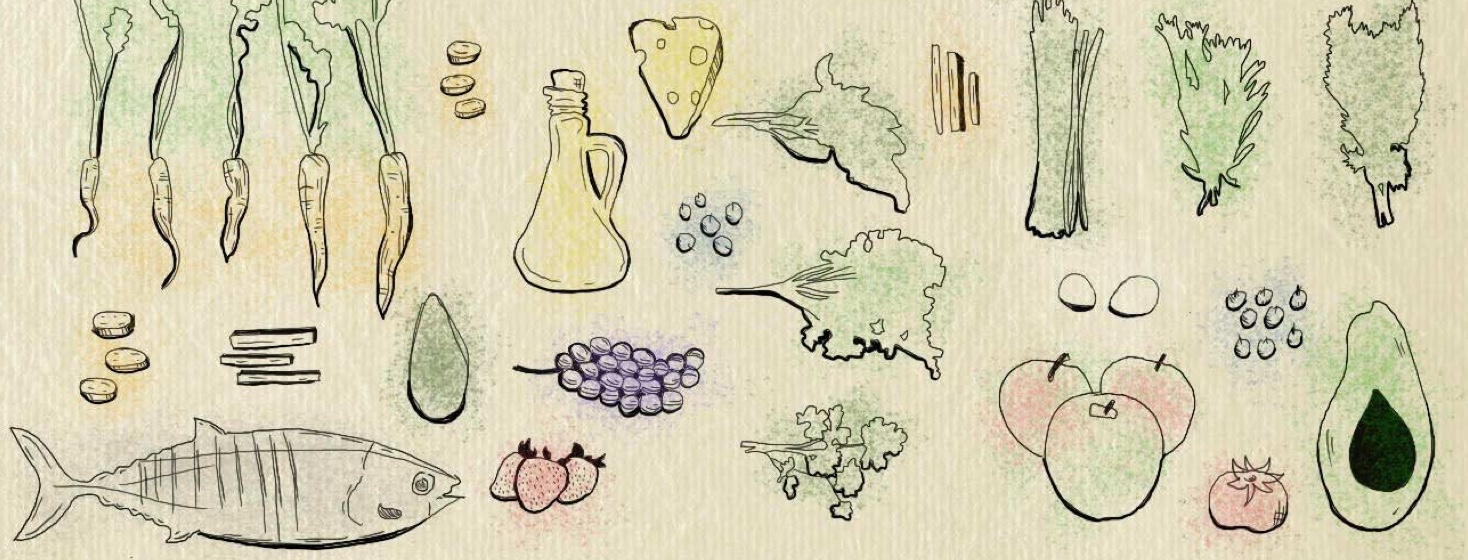New Perspectives on Nutrition for RA
A new article in Rheumatology Advisor highlights recent findings on nutrition for people with rheumatoid arthritis (RA).
“Role of Nutrition in Protecting Against Disease Risk and Progression in Rheumatoid Arthritis” summarizes several studies on nutrition practices for RA patients.
Highlighting nutrition research
For example, one review examining 70 studies found that high doses of omega-3 polyunsaturated fatty acids helped to reduce disease activity and lower rates of medication failure for RA patients.1Vitamin D supplements, lower salt intake, and the Mediterranean diet were also connected to RA outcome improvements.1
Conversely, examining findings on vegetarian, elimination, or other special diets indicated the successes very much depended on the individual.1
Results may depend on the individual
Together, these studies indicate while some dietary changes can improve RA symptoms, other results may depend on the person. However, the takeaway is that nutrition should be considered as a part of RA treatment.1
Further, diet may also help with preventing or treating co-occurring conditions that can appear in RA patients, like cardiovascular disease.1
In commentary provided by a rheumatologist, the article notes:1
There are so many variables that can complicate the picture, including the methodology of nutrition studies, changing dietary patterns throughout the different stages of one’s life, the accuracy of patient-reported food intake, concurrent lifestyle changes, and other factors.
In this era of widespread chronic disease, clinicians – and the rest of the healthcare system – are obligated to not just manage medications to control disease, but also to treat disease through a lifestyle approach.
A healthy diet helps overall health
Thankfully, this new review of nutrition research affirms what we have been learning for decades: that generally, a healthy diet helps with managing RA symptoms.
Additionally, some people experience better results with specialty diets, but that this experience is highly individualized.
Small changes are good, too
I would also add that while nutrition can be huge, it may not always appear that way. Sometimes even small changes can be good for RA. Diet may not result in life-changing improvements, so I think it’s best to manage expectations.
Good lifestyle changes can add up
However, when looking at our health as a whole and incorporating lifestyle changes collectively (like diet, exercise, improved sleep, stress management, and so forth), they can add up to be significantly helpful for RA patients.
I wouldn't be anywhere without my medications
I personally have found that one change may not be impactful, but several small changes can definitely add up to feeling better.
Still, while lifestyle adjustments can be helpful for managing RA, medical treatment must still be pursued. I wouldn’t be anywhere without my medications and other therapies.
For me, it is a mix of approaches that have made the most difference in my overall health (not just my RA, but also my other associated conditions).
A holistic approach to RA
Perhaps, someday, a magic nutritional mix will result in greater changes to RA patient health. But in the meantime, looking at things holistically may be the best approach as there is currently no single thing that will solve RA.
Everyone is different
It can also be helpful to be willing to try and try again on different diets to find what best suits the individual patient. I myself have tried a variety of diets. And, while none were game-changers, it has helped to maintain an overall healthy diet with a Mediterranean diet emphasis.
However, each body is different and so careful experimentation under the guidance of a medical team can be helpful.

Join the conversation